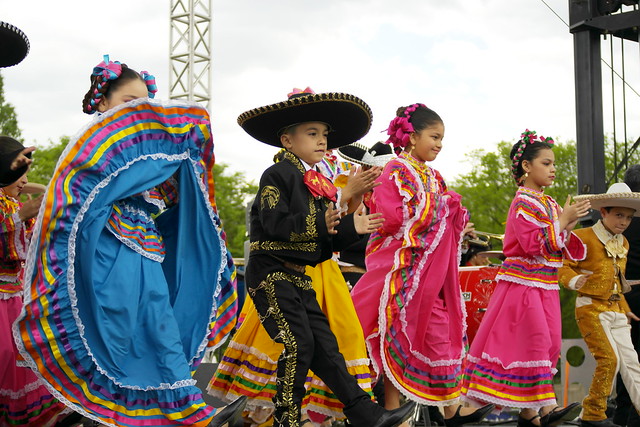 Since today is Cinco de Mayo, I figured it made sense to write something about cultural appropriation. Based on what I've repeatedly heard from some on the left, today is the day when many White college students can be expected to wear sombreros as they celebrate by drinking too much tequila. And we are told that this is a serious problem because it involves cultural appropriation. I'm not sure how we determine when admiration, respect, and/or enjoyment for certain aspects of a culture turn into the problematic appropriation of that culture. Isn't this how culture has always worked? A culture is never static and unchanging but constantly changes by incorporating aspects of cultures with which its people come in contact.
Since today is Cinco de Mayo, I figured it made sense to write something about cultural appropriation. Based on what I've repeatedly heard from some on the left, today is the day when many White college students can be expected to wear sombreros as they celebrate by drinking too much tequila. And we are told that this is a serious problem because it involves cultural appropriation. I'm not sure how we determine when admiration, respect, and/or enjoyment for certain aspects of a culture turn into the problematic appropriation of that culture. Isn't this how culture has always worked? A culture is never static and unchanging but constantly changes by incorporating aspects of cultures with which its people come in contact.It is not that I'm entirely unsympathetic to the left's objections to cultural appropriation. I remember attending a Halloween party way back in college where a group of White women thought it would be fun to go dressed as "gang bangers." They wore the clothing they associated with Black gang members. One of them even wore blackface, although I seem to recall that she removed it after about 15 minutes into the party when it did not elicit the sort of reaction she had anticipated. I knew a couple of these women, and they weren't bad people. Their costumes were a mistake, though.
Nobody called this "cultural appropriation" at the time, but many of us viewed it as racist. We expressed our disapproval calmly and consistently. There was no finger-pointing, outrage, shaming, or anything of the sort. It was more like, "That's really not cool, and let me explain why." They learned an important lesson that night when some actual gang members showed up, but I am confident that they would have learned something anyway. My guess is that they'd face very different reactions today, reactions that might be less likely to result in them learning much.
These days, many on the left seem far more interested in punishing those they perceive as engaging in cultural appropriation than they do about changing their minds. The recent social media outrage aimed at a high school student who wore a prom dress some apparently considered too Asian was an unfortunate example of this. The spectacle of an adult man bullying a female high school student on Twitter was unsettling; however, it was nice to see that she stood her ground and that she received quite a bit of support from others.
Thinking about cultural appropriation also reminds me of a White college friend who was born and raised in Hong Kong. He lived there until mid-way through high school. Although his parents were both White and his family spoke English at home, he'd been immersed in the culture of Hong Kong for most of his life. In college, he decorated his apartment with Chinese art. He still had family in Hong Kong, and they sent him some really cool stuff. Once in awhile, he could be seen wearing clothing I'd associate with Chinese culture. He brought us gum and candy from China. He closely followed news from China. Anyone who knew him, even casually, would immediately recognize his love of Chinese culture. He talked about it often, and it was clear that he missed Hong Kong. After all, it was home.
At that time, I remember hearing some negative comments from White students who did not know this guy. "Does that dude think he's Asian or something?" They didn't call this "cultural appropriation," but that is probably just because that term was not on anyone's radar yet. The Asian students never seemed to have a problem with him, and many of the international students from China embraced him. I think they recognized that his admiration was sincere, and when they learned that he'd lived in Hong Kong for most of his life, I think it made sense to them why he'd be so attached to the culture. My guess is that the reactions he'd have to endure would be very different today. He'd almost certainly be subjected to outraged mobs howling about "cultural appropriation," and I think that's unfortunate.